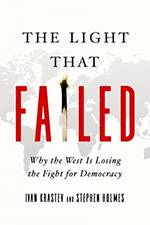OnPoint Subscriber Exclusive

Aryeh Neier
Says More…
This week, Project Syndicate catches up with Aryeh Neier, President Emeritus of the Open Society Foundations and a founder of Human Rights Watch.
Project Syndicate: The revival of authoritarianism in China under President Xi Jinping, to which you recently called attention, has been widely reported internationally, but also widely ignored, owing largely to China’s massive economic clout. Now, however, the consequences of China’s internal repression are going global in the form of a deadly outbreak of a new coronavirus, COVID-19, that Xi’s regime sought to downplay, evidently putting its own reputation ahead of immediate action to contain the bug. Will this episode force the international community, or at least key players such as the European Union, to reconsider their business-first approach to Xi’s China?
Aryeh Neier: We don’t yet know whether COVID-19 will lead to a global pandemic, but the possibility is frightening. As I note in my new PS commentary, if the Chinese authorities’ initial reaction to the virus had not been to cover it up, it may have been contained. This underscores, yet again, how dangerous it is when governments suppress information and, more broadly, when they lack the public accountability that is an essential characteristic of an open society.
But governments will not reconsider how they deal with China without extensive public discussion. And, unfortunately, that level of debate is unlikely to emerge unless our worst fears of a COVID-19 pandemic are realized.
Neier recommends
We ask all our Say More contributors to tell our readers about a few books that have impressed them recently. Here are Neier's picks:
-

The Light That Failed: Why the West Is Losing the Fight for Democracy
by Ivan Krastev and Stephen Holmes
This is, in my view, an important account of liberalism’s failure to take hold in Russia, and of the recent rise of xenophobic nationalism in countries like Hungary and Poland. Among other things, the authors discuss how imitation of the West acquired a hostile character.
-

Arendt and America
by Richard H. King
Published in 2015, this book shows how twentieth-century political theorist Hannah Arendt’s encounters with American political culture shaped her most important intellectual contributions.
-

Blood in the Water: The Attica Prison Uprising of 1971 and Its Legacy
by Heather Ann Thompson
Though this book – which won the 2017 Pulitzer Prize for History – deals with an episode that took place long ago, it is the best book on the prison experience in America I can recall reading.
From the PS Archive
From 2019
Neier condemns the indictment of 16 civil-society leaders in Turkey for their role in the 2013 Gezi Park protests. Read the commentary.
From 2016
Neier says that extrajudicial killings in the Philippines' "war on drugs" are a crime against humanity. Read the commentary.
Around the web
In this interview, Neier – a former executive director of the American Civil Liberties Union – reflects on his hiring of Ruth Bader Ginsburg to direct the Women’s Rights Project and her tenure at the ACLU. Read the transcript.
In a speech at Hunter College. Neier describes the achievements and challenges of the international human-rights movement. Watch the video.